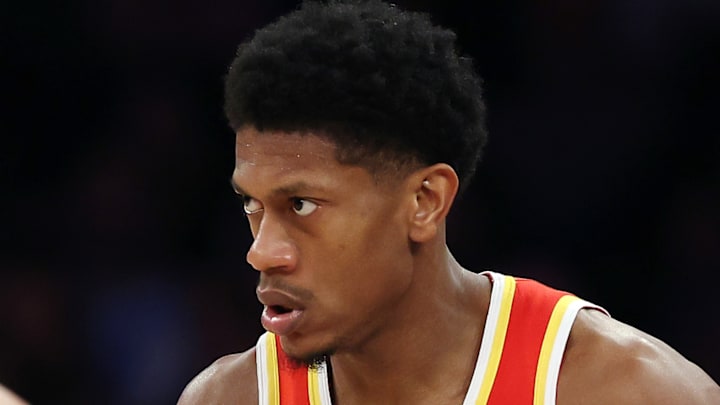The Atlanta Hawks got off the schneid, making a trade to send De’Andre Hunter to the Cleveland Cavaliers before the deadline.
This deal creates several questions for the Hawks that will certainly impact their current “final” grade. They are expected to make further moves to avoid the luxury tax, but we can still gauge the trade for what it is so far.
So, let’s lay it all out to discern how the Hawks fared amid mixed reactions.
Hawks get:
- Caris LeVert
- Georges Niang
- 2026 first-round pick (conditional swap via UTA)
- 2028 first-round pick (UTA owns swap rights)
- 2027 second-round pick
- 2029 second-round pick
- 2031 second-round pick
Cavaliers get:
- De’Andre Hunter
The Hawks made this deal and the immediate expectation is that they will need to make more moves since it leaves them above the luxury tax threshold. For that reason, we will not delve too deeply into the assets coming in just yet.
At a glance, LeVert is 30 years old and averaging 10.2 points while shooting 40.5% from beyond the arc on an expiring two-year, $32 million contract.
Niang is 30 averaging 8.7 PPG with a 40% clip from 3P.
The real draw for the Hawks figures to be the draft capital. The Hawks do not own their 2025 first-round pick. And while these picks coming in are under certain restrictions, they could be combined for later deals.
Second-round picks have also become increasingly valuable in the current trade landscape under a CBA that is more punitive for teams that spend big.
The Hawks added roughly $3.4 million to their bottom line with the deal.
The biggest question was what comes next for the Hawks, and while they answered that, even that comes with mixed messaging. Hawks general manager Landry Fields’ post-deadline press conference should be revealing.
What does this mean for Trae Young? Did the Hawks entertain offers for him during this transaction window? How does this course of action make him feel amid a desire to win now?
Those are just the tip of the iceberg after the Hawks made a clear pivot given the return.
Grade – C: Because the Hawks have more moves coming down the pipeline, their grade could technically be considered “incomplete.” But that is a cop-out when the move made clearly has more appeal for the future than this season.
Cavaliers getting best version of De’Andre Hunter
Hunter leads the league in scoring among all players with more than two games off the bench, and he showed that he can still operate as a starter over the last two games with the Hawks.
He is in Year 2 of a four-year, $90 million contract.
He has also dealt with knee issues in his career. While the deal may not be popular among Hawks fans, that surely factored into the front office’s thinking amid his hot start. It could be ominous for the Cavs.
Hunter has never made more than 67 appearances in a season and averaged 52.6 games played per season coming into 2024-25.
However, the Cavaliers did not give up any of their younger talent.
The picks surrendered were also already potentially going out, so they did not truly lose any new assets beyond the second-round picks. If they can figure out how to keep Hunter on the court – no small task – this could prove to be a steal for the Cavs who lead the NBA in wins.
If their gamble is wrong, though, Hunter’s contract could prove to be the albatross for the Cavaliers that it seemed destined to be for the Hawks before the season.
Grade – B-: Time will tell if this grade holds up, but the Cavs gave up relatively minimal assets for an impactful player amid a potential championship run. The injury risk is what takes it come being an even higher mark.
